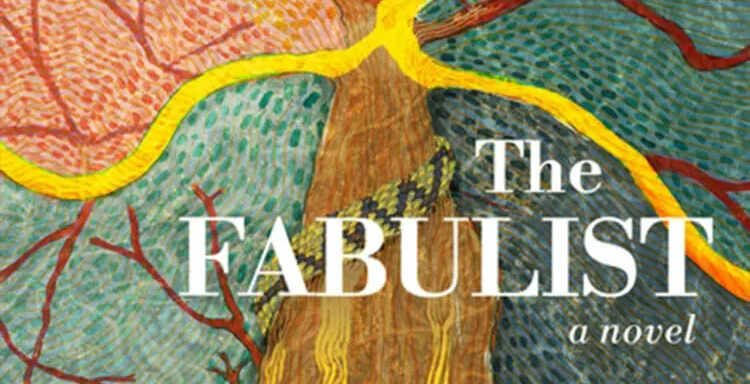
Uthis Haemamool’s novel จุติ was published in English translation this year as The Fabulist: A Novel. The book describes the protest movement that emerged after the 2006 coup as a “new democratic spirit, which saw citizens as the rightful owners of the country, rather than the few high-ranking officers and aristocrats who governed as though they knew what the majority needed or didn’t need.”
These pro-democracy red-shirts were opposed by the pro-establishment yellow-shirts, in a prolonged political conflict that the novel calls “a chasm between two groups who held two completely different versions of the truth.” The protests ended in 2010, when Abhisit Vejjajiva authorised the use of live ammunition by the army. As the novel puts it: “Death and casualties among Red Shirt protestors erupted after the government — led by the prime minister with the pretty face — ordered the police to ‘secure the area’.”
Interviewed by Max Crosbie-Jones for the Nikkei Asia website this month, Uthis explained that the 2010 crackdown marked the beginning of his political engagement: “Prior to that I thought that art and literature was separate from politics, but seeing so many people killed changed me. And it was even more disappointing to see members of Thailand’s literary and art circles celebrating. Politics have been embedded in my work ever since.”
In his Nikkei article, Crosbie-Jones describes the 2010 massacre, which took place at Ratchaprasong in Bangkok, as “an event that galvanized many Thai artists, writers and filmmakers to address the country’s legacy of coups, military interference and autocracy”. Sayan Daenklom coined the term “Post-Ratchaprasong art” to describe works produced in response to the crackdown, in the journal Read (อ่าน; vol. 3, no. 2), and this describes not only The Fabulist but also books such as เขต Like กระสุนจริง (‘like a live-fire zone’), Nitipong Sumrankong’s collection of short stories inspired by the events at Ratchaprasong.
These pro-democracy red-shirts were opposed by the pro-establishment yellow-shirts, in a prolonged political conflict that the novel calls “a chasm between two groups who held two completely different versions of the truth.” The protests ended in 2010, when Abhisit Vejjajiva authorised the use of live ammunition by the army. As the novel puts it: “Death and casualties among Red Shirt protestors erupted after the government — led by the prime minister with the pretty face — ordered the police to ‘secure the area’.”
Interviewed by Max Crosbie-Jones for the Nikkei Asia website this month, Uthis explained that the 2010 crackdown marked the beginning of his political engagement: “Prior to that I thought that art and literature was separate from politics, but seeing so many people killed changed me. And it was even more disappointing to see members of Thailand’s literary and art circles celebrating. Politics have been embedded in my work ever since.”
In his Nikkei article, Crosbie-Jones describes the 2010 massacre, which took place at Ratchaprasong in Bangkok, as “an event that galvanized many Thai artists, writers and filmmakers to address the country’s legacy of coups, military interference and autocracy”. Sayan Daenklom coined the term “Post-Ratchaprasong art” to describe works produced in response to the crackdown, in the journal Read (อ่าน; vol. 3, no. 2), and this describes not only The Fabulist but also books such as เขต Like กระสุนจริง (‘like a live-fire zone’), Nitipong Sumrankong’s collection of short stories inspired by the events at Ratchaprasong.

Like Uthis and Nitipong, author Veeraporn Nitiprapha was also inspired to incorporate political subtext into her fiction writing after 2010, as she explained in an interview with the Electric Literature website: “I was overcome with a deep, painful bitterness seeing the fashionable, well-educated, well-paid people of the city feeling content about the injuries inflicted upon the poorer, less educated people who were mostly from the upcountry. And it was important to write about that bitterness.”
Similarly, documentary filmmaker Pasakorn Pramoolwong explained that he became politically aware after the street protests against Yingluck Shinawatra’s government. He told the Bangkok Post on 19th June 2013: “Before that I didn’t care about politics and I hadn’t read the newspapers for several years. But... I started to feel uncomfortable with all the chaos, the roadblocks, the street protests and what various groups of people were saying. And I started to wonder if they were playing by the same rules. And if those rules were democracy, I wondered whether it was the same democracy we were talking about.”
In Thailand, this political awakening is known as ta sawang. Film directors Pen-ek Ratanaruang (“me, who five years ago had no interest in politics”), Yuthlert Sippapak (“I never gave a shit about politics”), Chulayarnnon Siriphol (“I turned to be interested in the political situation”), Thunska Pansittivorakul (“I started to learn about politics”), Apichatpong Weerasethakul (“I was politically naïve”), and Nontawat Numbenchapol (“I was a teenager, a young man not interested in politics”) all describe their ta sawang moments in Thai Cinema Uncensored.
Similarly, documentary filmmaker Pasakorn Pramoolwong explained that he became politically aware after the street protests against Yingluck Shinawatra’s government. He told the Bangkok Post on 19th June 2013: “Before that I didn’t care about politics and I hadn’t read the newspapers for several years. But... I started to feel uncomfortable with all the chaos, the roadblocks, the street protests and what various groups of people were saying. And I started to wonder if they were playing by the same rules. And if those rules were democracy, I wondered whether it was the same democracy we were talking about.”
In Thailand, this political awakening is known as ta sawang. Film directors Pen-ek Ratanaruang (“me, who five years ago had no interest in politics”), Yuthlert Sippapak (“I never gave a shit about politics”), Chulayarnnon Siriphol (“I turned to be interested in the political situation”), Thunska Pansittivorakul (“I started to learn about politics”), Apichatpong Weerasethakul (“I was politically naïve”), and Nontawat Numbenchapol (“I was a teenager, a young man not interested in politics”) all describe their ta sawang moments in Thai Cinema Uncensored.
